Leaf Peeping & Pond Hopping: Autumn Kayaking in the Adirondacks
This post may contain affiliate links.
Our kayaks skated across the glassy, still water as we made our way towards the island in the middle of the lake. Along the shores, the autumn foliage – made all the more brilliant by the setting sun – was mirrored perfectly in the surface the water. Behind us were the half-dozen interconnected lakes and streams we crossed to get here. And ahead of us was a tiny peaceful island that we were going to call home for the night.

The area we were exploring is called the St. Regis Canoe Wilderness near Saranac Lake, New York. This is the largest wilderness canoe area in the Northeast, spanning nearly 30 square miles and containing 58 lakes and ponds. It is closed to motor vehicles, and while there are plenty of hiking trails, the best way to experience this area is on the water.
Between the New York DEC and the St. Regis Canoe Outfitter websites, we were able to do a lot of pre-trip planning online. The St. Regis Canoe Wilderness was the only place in the Northeast we could find to do a paddling loop. This way we could launch, go out for a multi-day paddle, and return back to the car without having to retrace our route. In order to make it a complete loop, we would need to portage our kayaks over same sections of land, but we had plan for that.
After meeting their team at Outdoor Retailer this summer, we partnered with Oru Kayak and they sent us their Coast and Bay+ models for this trip. Thanks to the miracle of modern plastics and their mind blowingly innovative design, Oru kayaks can be folded like origami, transforming from a full size kayak into a compact box that’s small enough to be carried as a backpack. In fact, Oru makes a backpack specifically for this purpose. So instead of carrying our kayaks over the longer portages one by one, we could just fold them up and carry them on our backs.
While our Focus Focus hatchback doesn’t have a ton of extra space in the back, we had plenty of room to transport two Oru’s from CT up to NY. It was a substantial yet enjoyable six hour drive. The further north we traveled, the more bold and fiery the foliage became. Visibility out of the rear-view mirror might have been a little limited, but it was much better than trying to install a kayak roof rack or worse – getting a trailer.
Once we arrived at the launch spot, all we had to do was build the kayaks and go. Another benefit of the folding kayaks was that we could place our gear inside and build the kayak around it. Conversely, if we wanted to access some gear up in the front, we didn’t have to root around for it, we could just unbuckle the top and pull out whatever we needed.
From the moment we pushed away from shore and began gliding out across the water, we knew this was going to be an incredible experience. The forecast was calling for perfect weather: sunny, mid-60’s, low humidity, light breeze – just absolutely gorgeous conditions for being out on the water.
We’ve spent a tremendous amount of time hiking and backpacking over the past year, but this was our first extended trip using kayaks. We’ve always appreciated water features before (especially for a mid-hike swim), but on this trip, we saw the waterways in an entirely new way. Now the pretty lakes and rivers weren’t just attractive vistas to look at, they were the trail. Wherever the water extended, we had free range. Instead of having to hike around a lake or find a place to cross a river, we could now just paddle straight across it.
Another interesting benefit of paddling is the presence of open space. On the east coast, trees are omnipresent and there are few trails here that pass above the treeline. Hiking can often feel like walking through a tunnel of green. Lakes and ponds are often the only places where you can fully appreciate the scenery at large – something we hadn’t really considered until we got out into the middle of one.
We passed from pond to pond, admiring the fall colors around us. In a few sections, we had to navigate down shallow, narrow streams that connected one body of water to another. We saw only a handful of other paddlers out on the water. This area is most popular during the summer months, but given the spectacular colors of the trees, fall didn’t seem like a bad time to visit, either.
As the sun began to set, we found ourselves paddling towards a tiny, wooded island in the middle of Follensby Clear Pond. All around the edges of the ponds and even on many of the islands, there are designated campsites that operate on a first-come, first-serve basis. The sites are remote and fairly primitive, with only a fire pit, possibly a picnic table, and possibly a nearby outhouse. They are, however, free for use – and maintained by the New York Department of Environmental Conservation.
We pulled our kayaks ashore and began to set up camp. Before long we had our tent set up, dinner cooking, and a small fire going in the firepit. That night we enjoyed a hearty one pot jambalaya that used orzo pasta and summer sausage. It was hot, spicy, and totally filling. Just what we needed after a long day working out our upper bodies.
Once we had cleaned up, we made ourselves a nautically themed warm rum drink we were calling North Country Grog. It combined warm water, dark rum, freshly picked New York apples, and a light drizzle of maple syrup. We sat by the shore sipping our drinks as the moon came up and the loons began their nightly calls.
The next morning we awoke to smoke on the water. Cool air had settled on top of the warm water, causing swirls of mist to dance across the surface. We made our requisite cup of coffee and enjoyed a quick breakfast of granola and dehydrated milk. We had intended to get an early start on the day, but it was just too relaxing to rush. So we took our time and enjoyed our island paradise for just a little longer. Once we got camp broke down and the kayaks loaded up, we pushed off for another day of paddling.
However, there were a handful of portages scheduled for today and we were excited to see how our folding kayak system would work out.
Our first portage was actually very short, less than 100 yards. For this one we decided to leave the kayaks constructed and carried them across one at a time (one of us carrying from the front and the other carrying in back).
The second portage was considerably longer, nearly a mile long from Polliwog Pond to Hoel Pond. If we had to carry one kayak, return, and then carry the other, we have had to walk 3 miles total. Instead, we folded the kayaks down, put them inside our backpacks, loaded our supplies to the outside, and then walked the 1 mile to the next launch spot. This saved us a lot of walking and a good deal of time.
We met a couple of fellow paddlers during these portages who had to make 3 or 4 trips to shuttle all of their gear across. The heaviest item they were carrying was usually big tanks of drinking water. A 5 gallon jug of water weighs over 40 lbs when full and takes considerable effort to carry. We on the other hand, brought an ultraviolet water purifier commonly used by weight-conscious backpackers. We figured there was water everywhere, and therefore plenty for us to drink.
As we continued into the next series of ponds, the foliage grew more and more vibrant. Towards lunchtime, we decided we had to pull over and take in the scenery. Earlier that morning, we had prepared our lunch – a Thai Peanut Butter Curry – inside of our insulated food containers. We combined the dry ingredients with boiling water inside the container, which cooked the meal while we paddled. Now for lunch, we had a warm meal without having to take out our kitchen gear.
As we sat on the shoreline eating our lunch and admiring our surroundings, we could hardly believe how beautiful and serene our experience had been. While we’ve been on plenty of overnight backpacking trips before, this kayaking trip felt different. Tranquil is not a word we would use to describe hiking, but that’s what gliding cleanly across the water feels like. Smooth, clean, and serene.
We had wonderful time exploring this very small section of the St. Regis Canoe Wilderness and we’re looking forward to spending a lot more time out on the water.
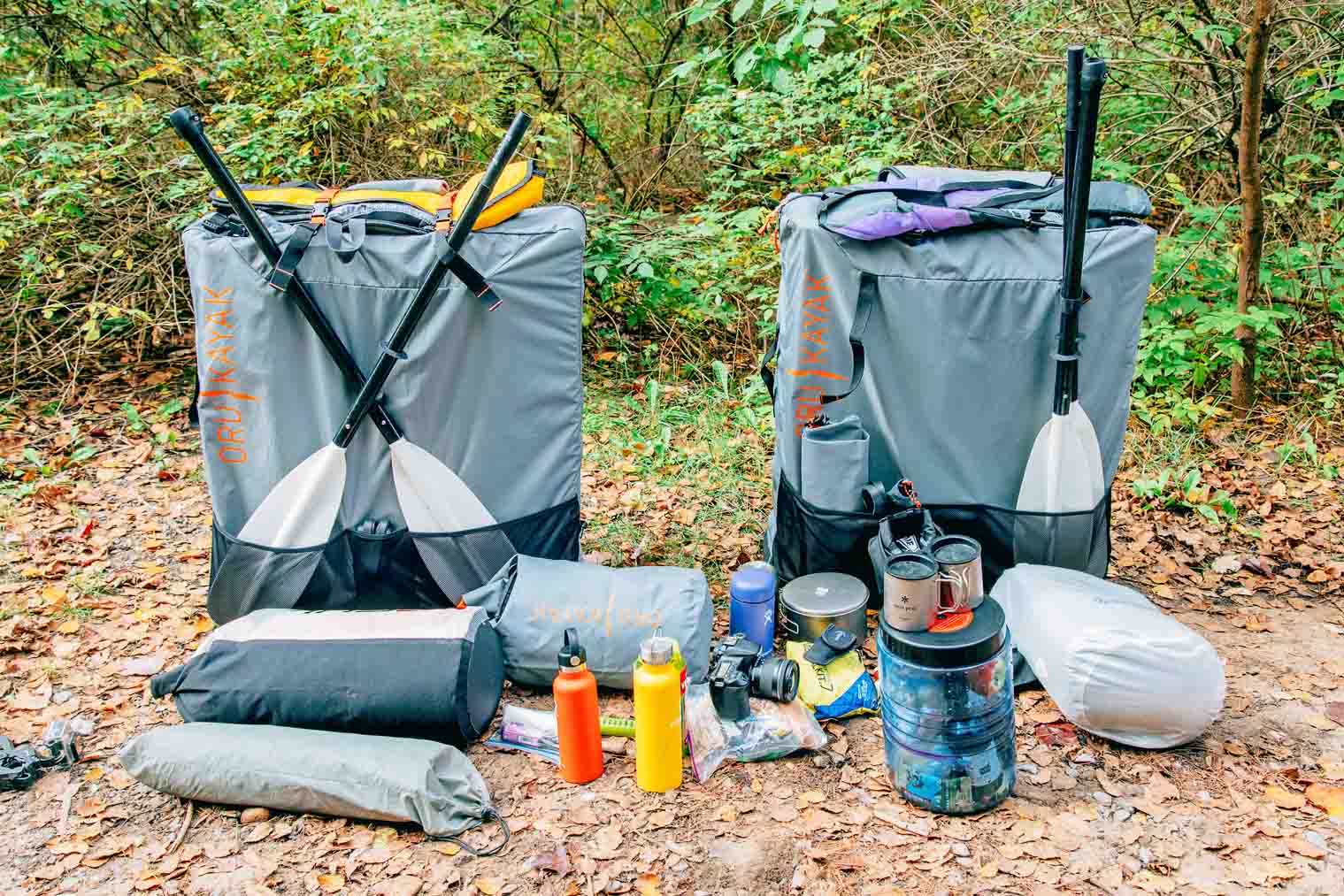
Some of these are affiliate links, which means we earn a small commission should you make a purchase. These are all items we use & love. Thanks for your support!
Our Packing List For This Trip
Michael’s Gear
ORU Coast Kayak
ORU Backpack
ORU Spray Skirt
Roll top dry bags
PFD
Montbell Down Hugger 0 F
Therm-a-rest Prolite Plus
Snowpeak Insulated Mug + Lid
Hydroflask Water Bottle
Hydroflask Food Flask
Shared Gear
Tarptent Double Rainbow
Bear Vault
Enerplex Jumpr Stack 6
Enerplex Kickr Solar Panel
GoPro 4 Black
Opinel Knife
Black Diamond Cosmo Headlamp
Adventure Medical Kit .7
Megan’s Gear
ORU Bay+ Kayak
ORU Backpack
ORU Spray Skirt
Roll top dry bags
PFD
Sierra Designs Vapor 15 (discontinued)
Therm-a-rest Prolite Plus
Snowpeak Insulated Mug + Lid
Nalgene Wide-Mouthed Water Bottle
Hydroflask Food Flask
Cooking Gear
MSR Pocket Rocket Stove
Fuel Canister
Snow Peak Cook N Save
Snow Peak Insulated Mugs
SteriPen Pure + Water Purifier
Miscellaneous Adventures Spoon
Dr. Bronner’s Hand Sanitizer
Sponge


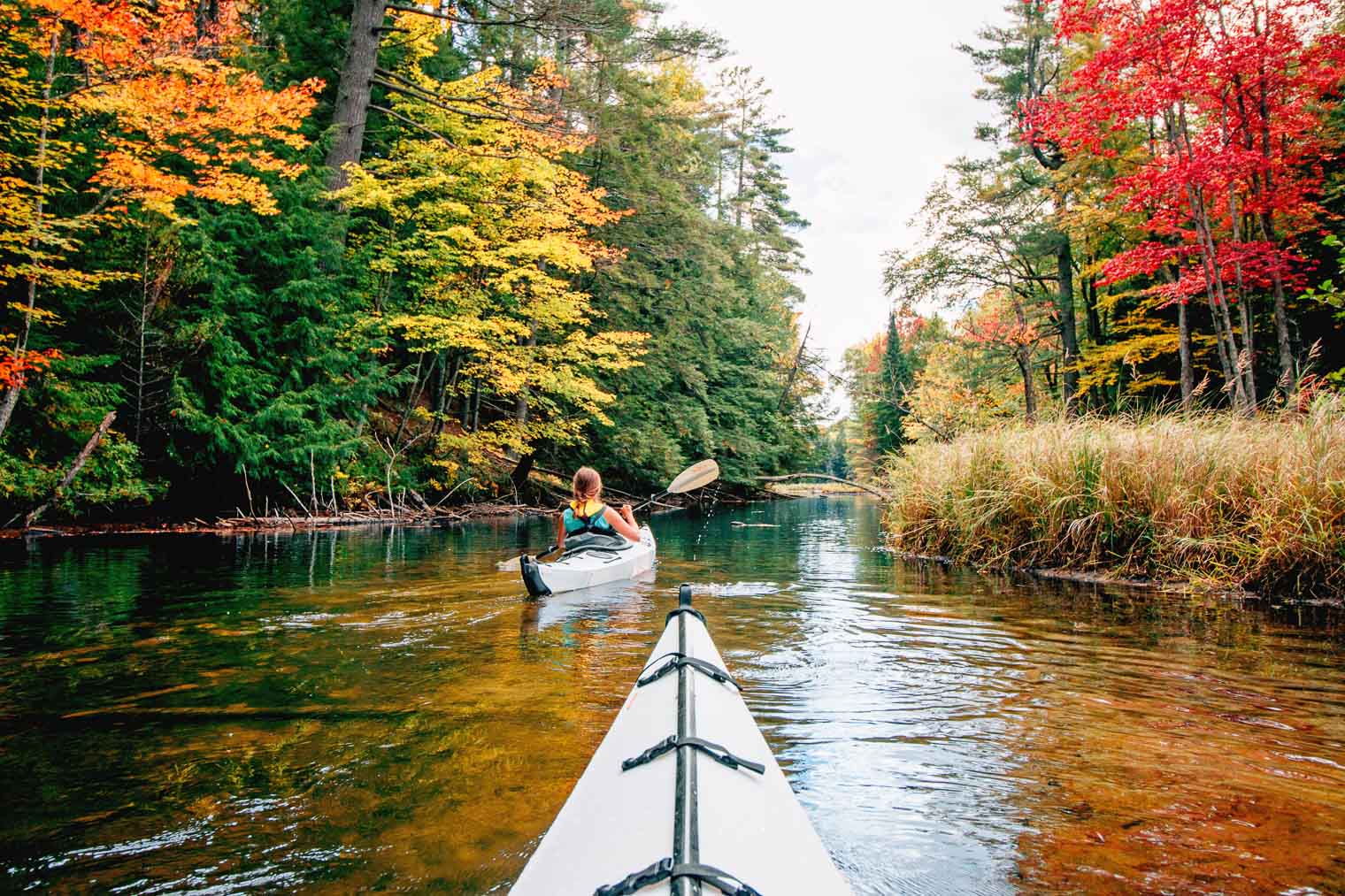
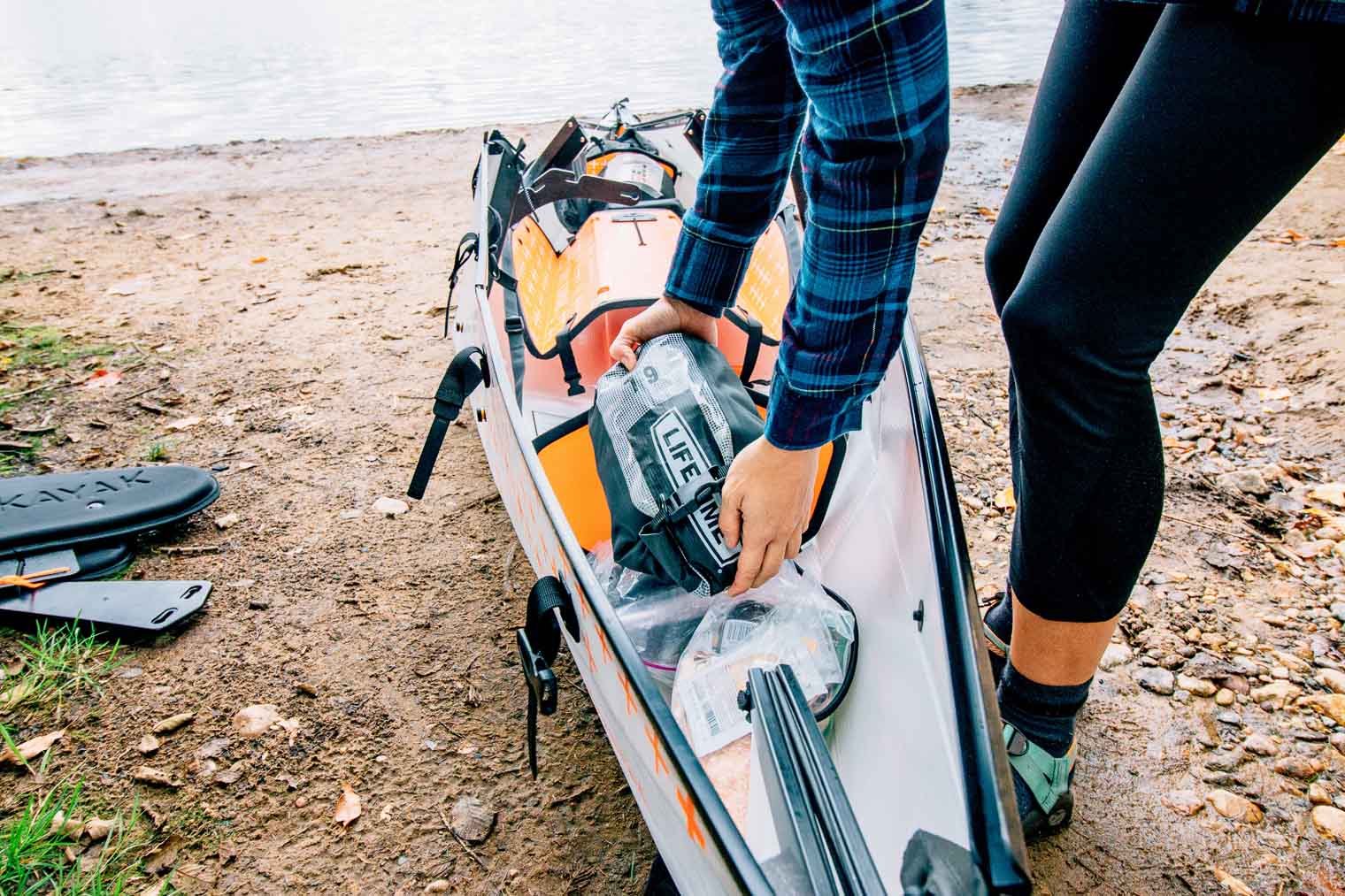
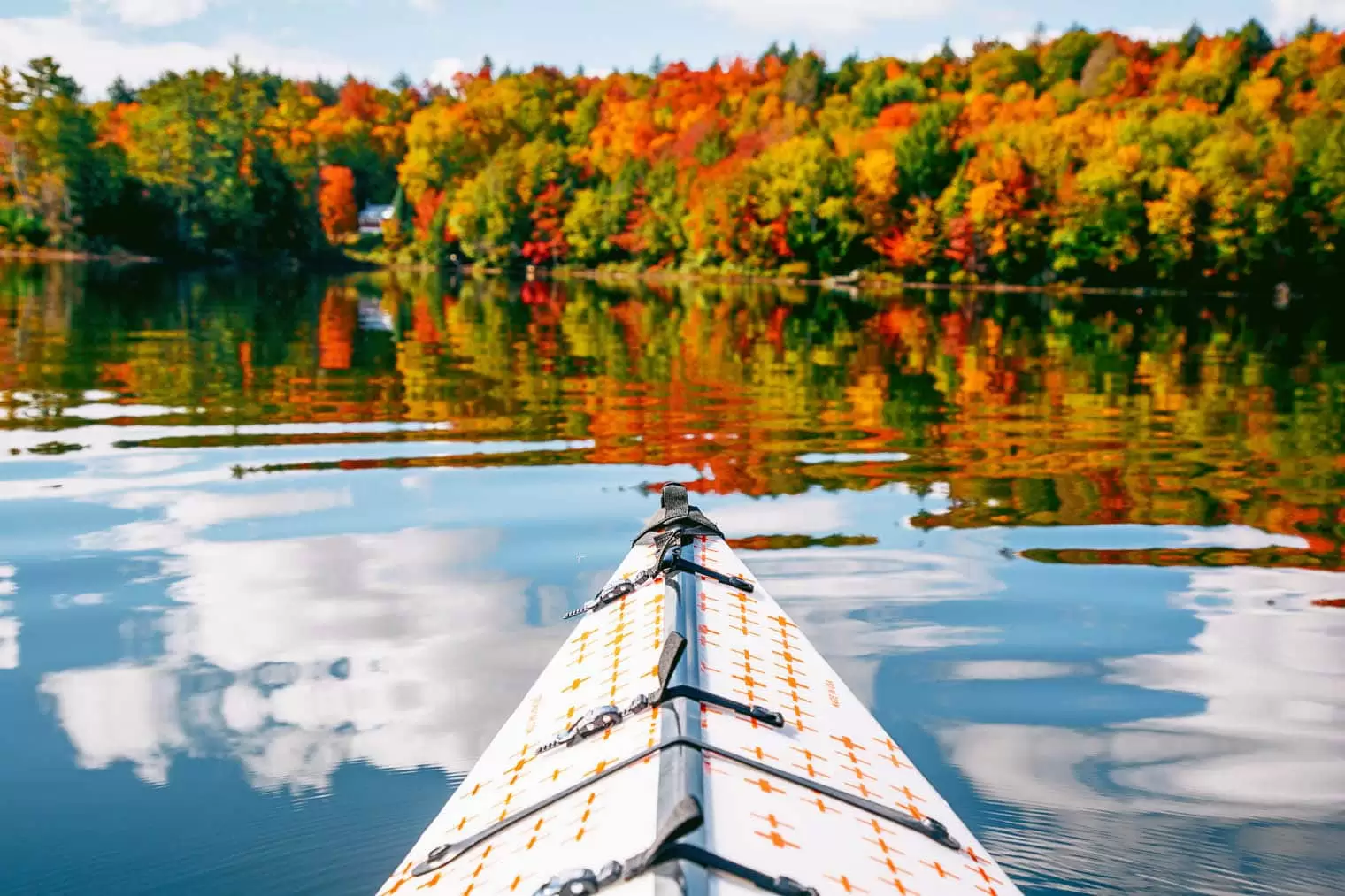
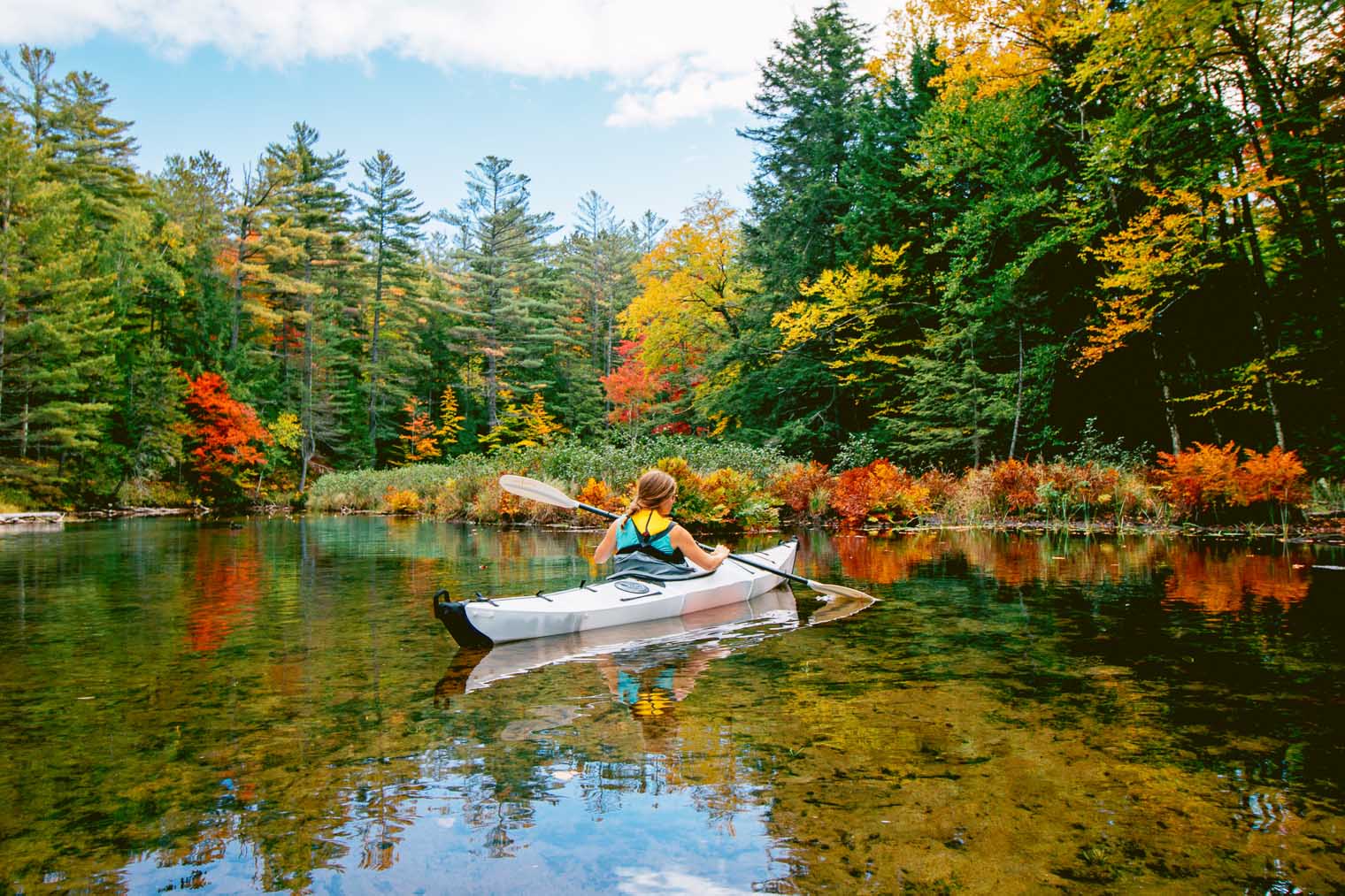
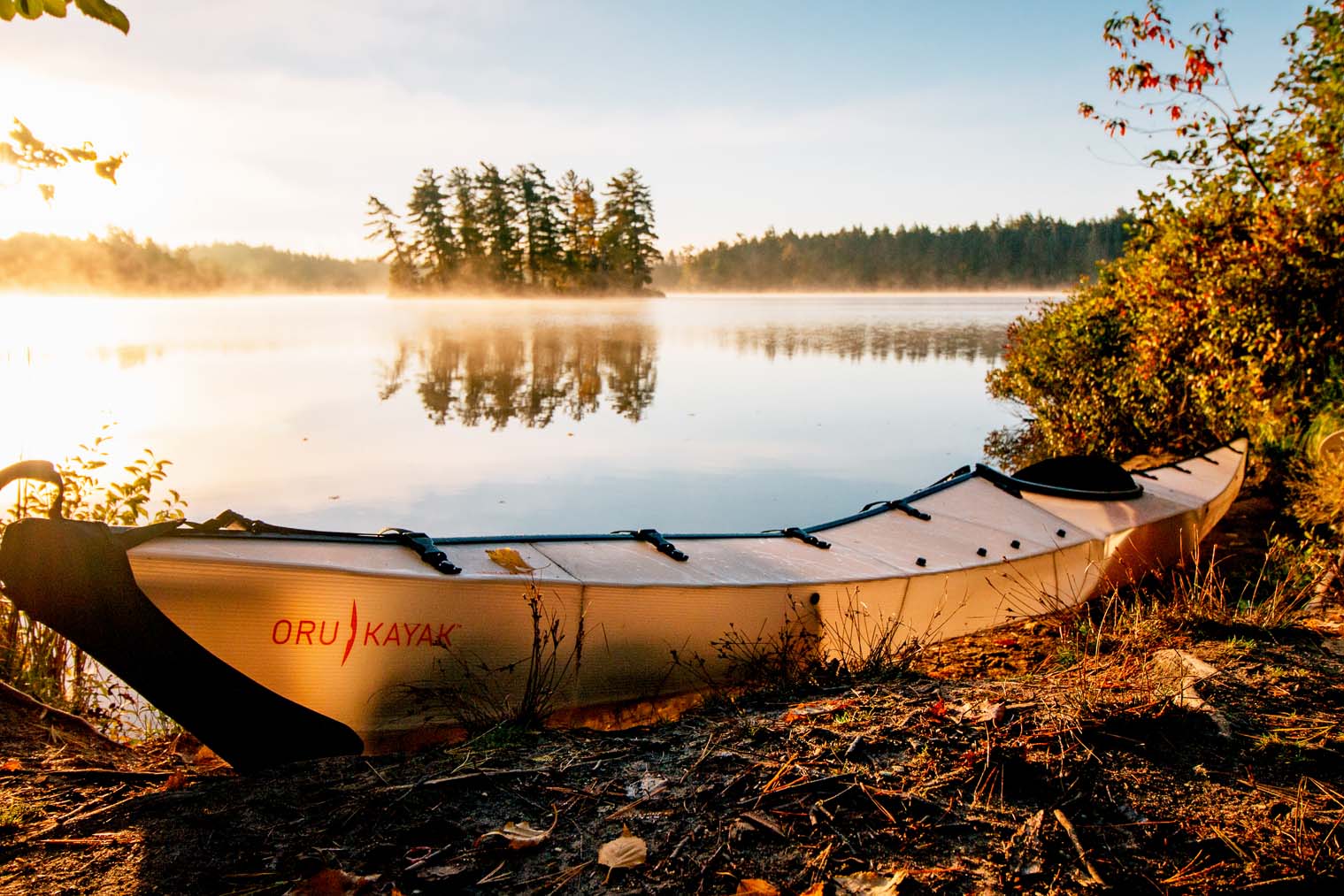
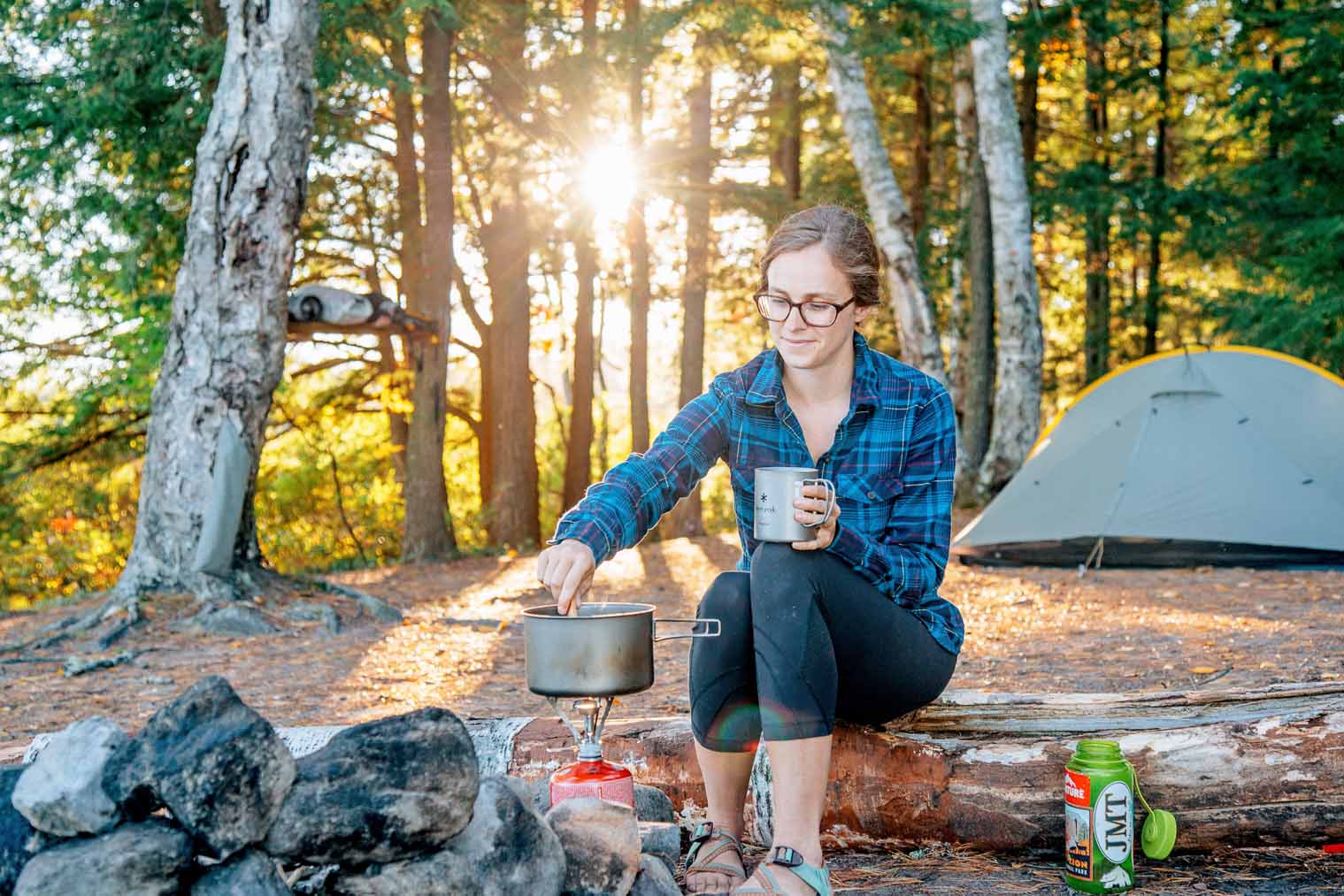
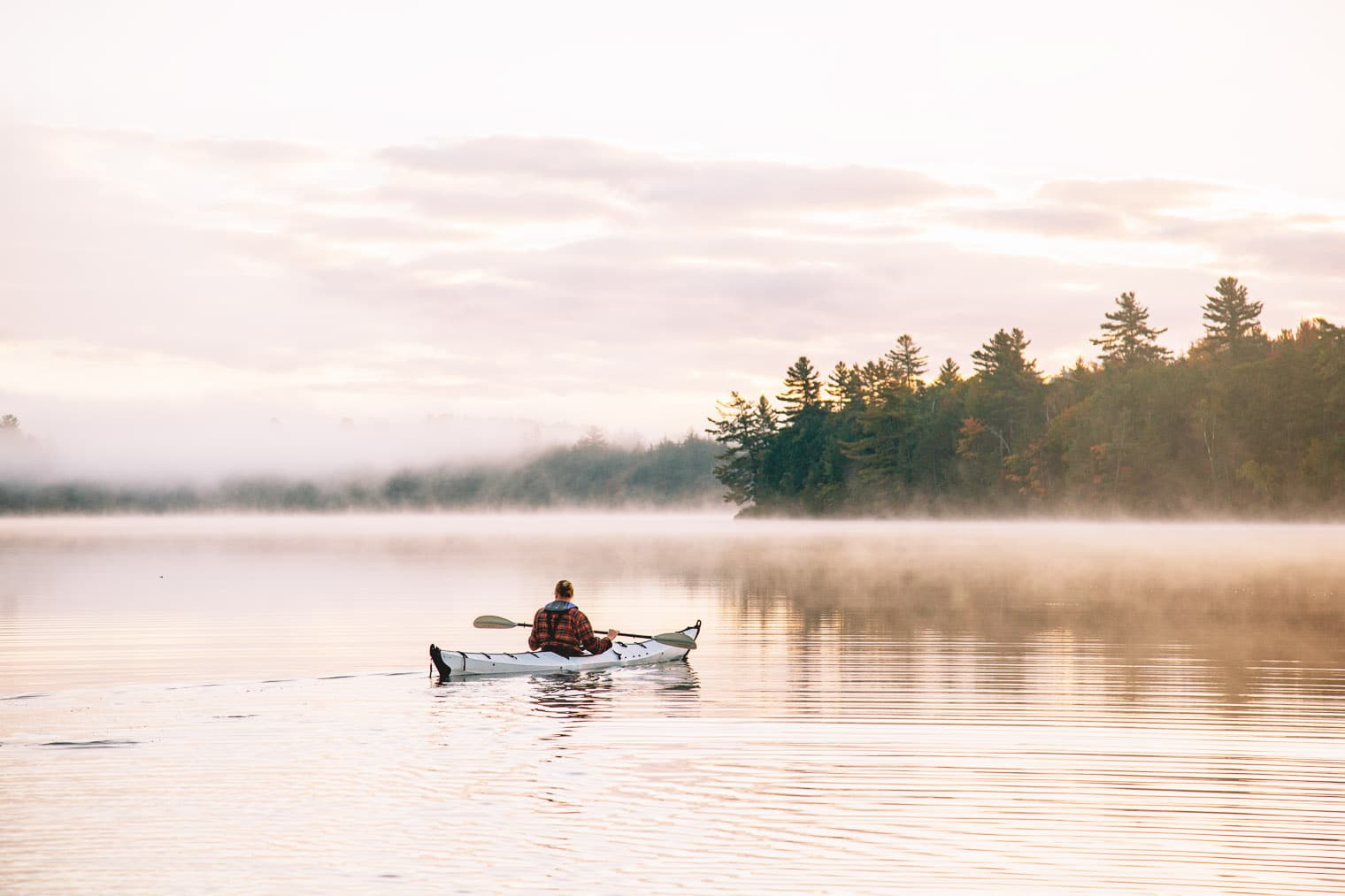
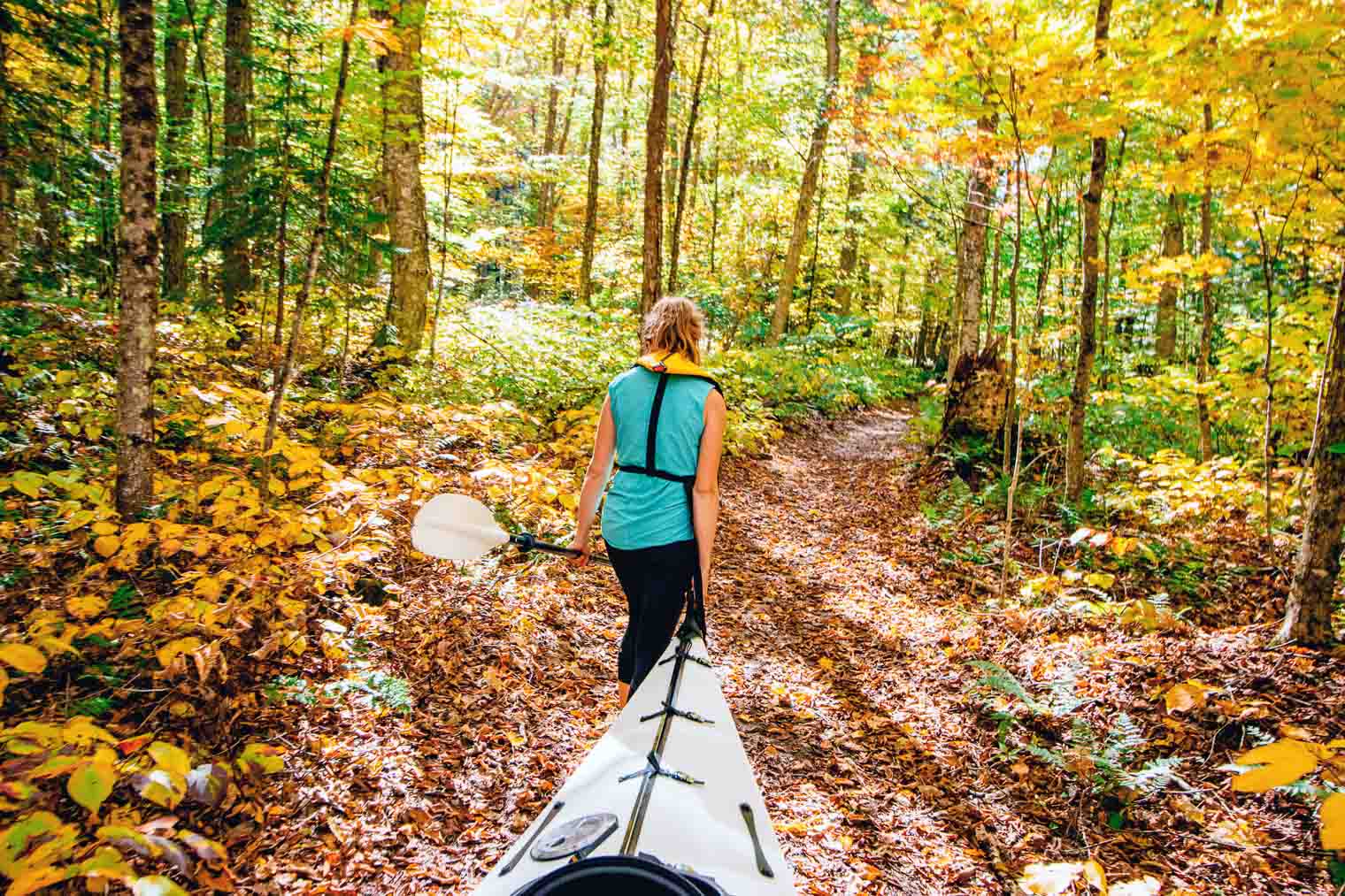
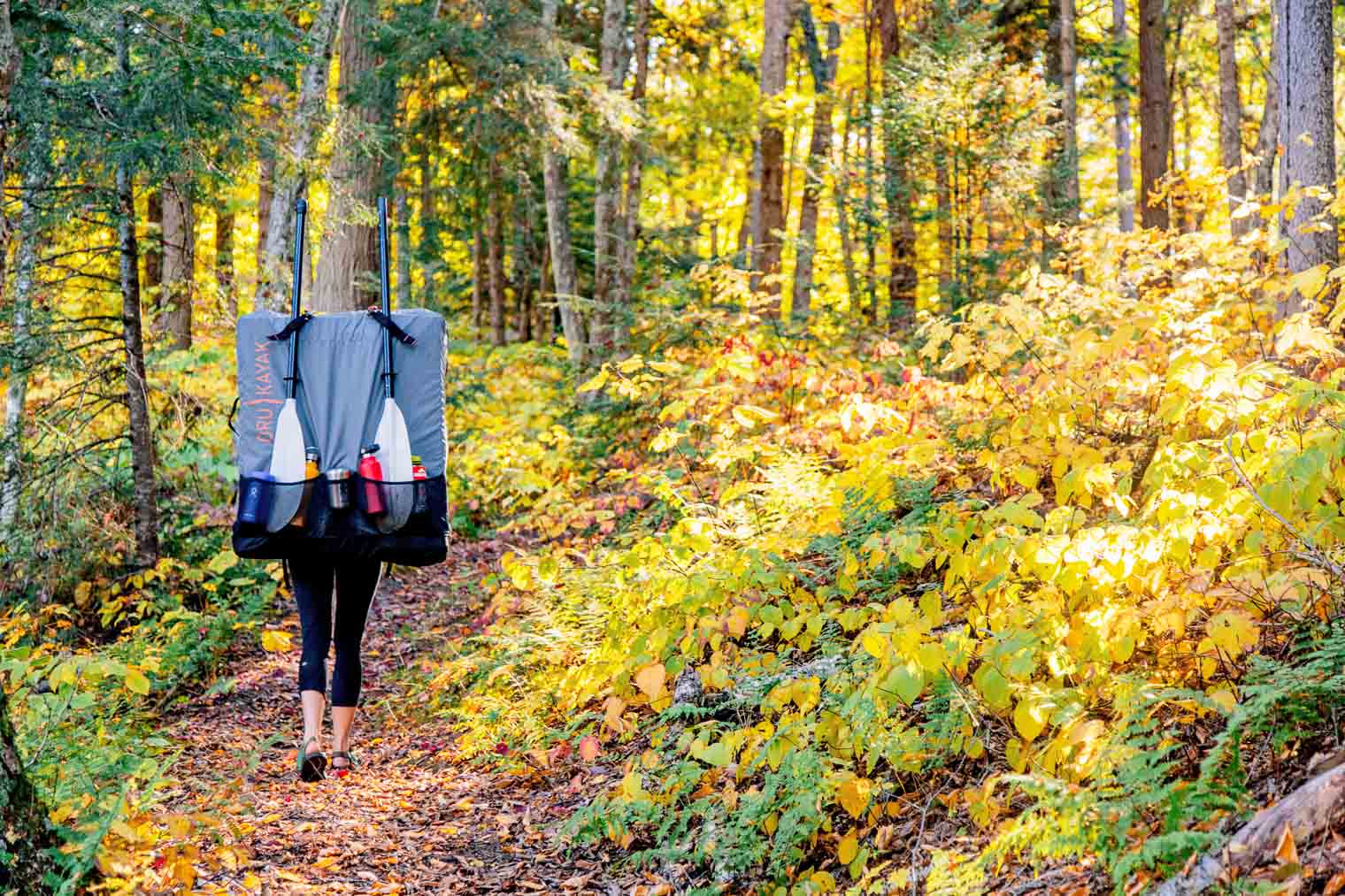
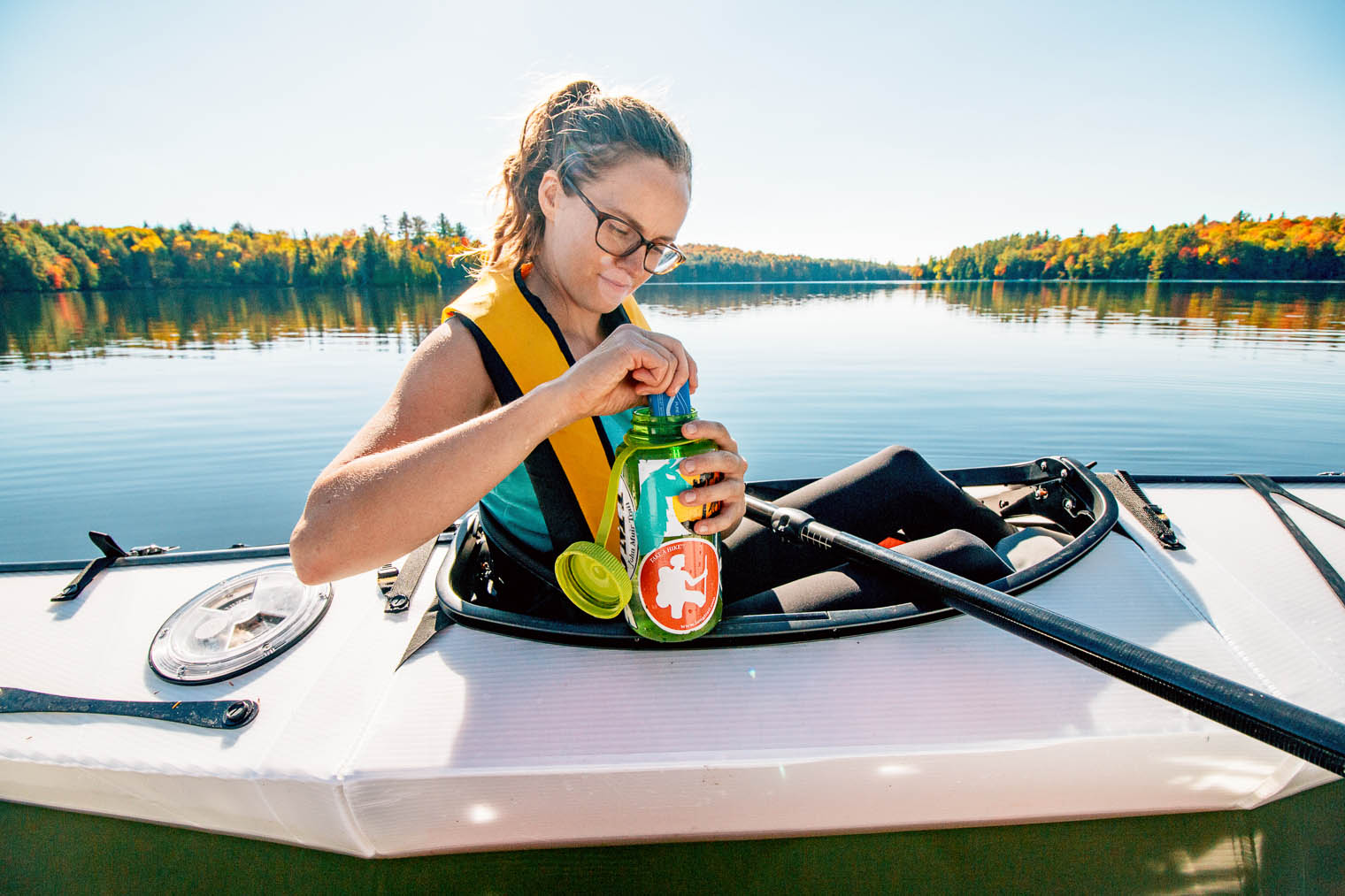
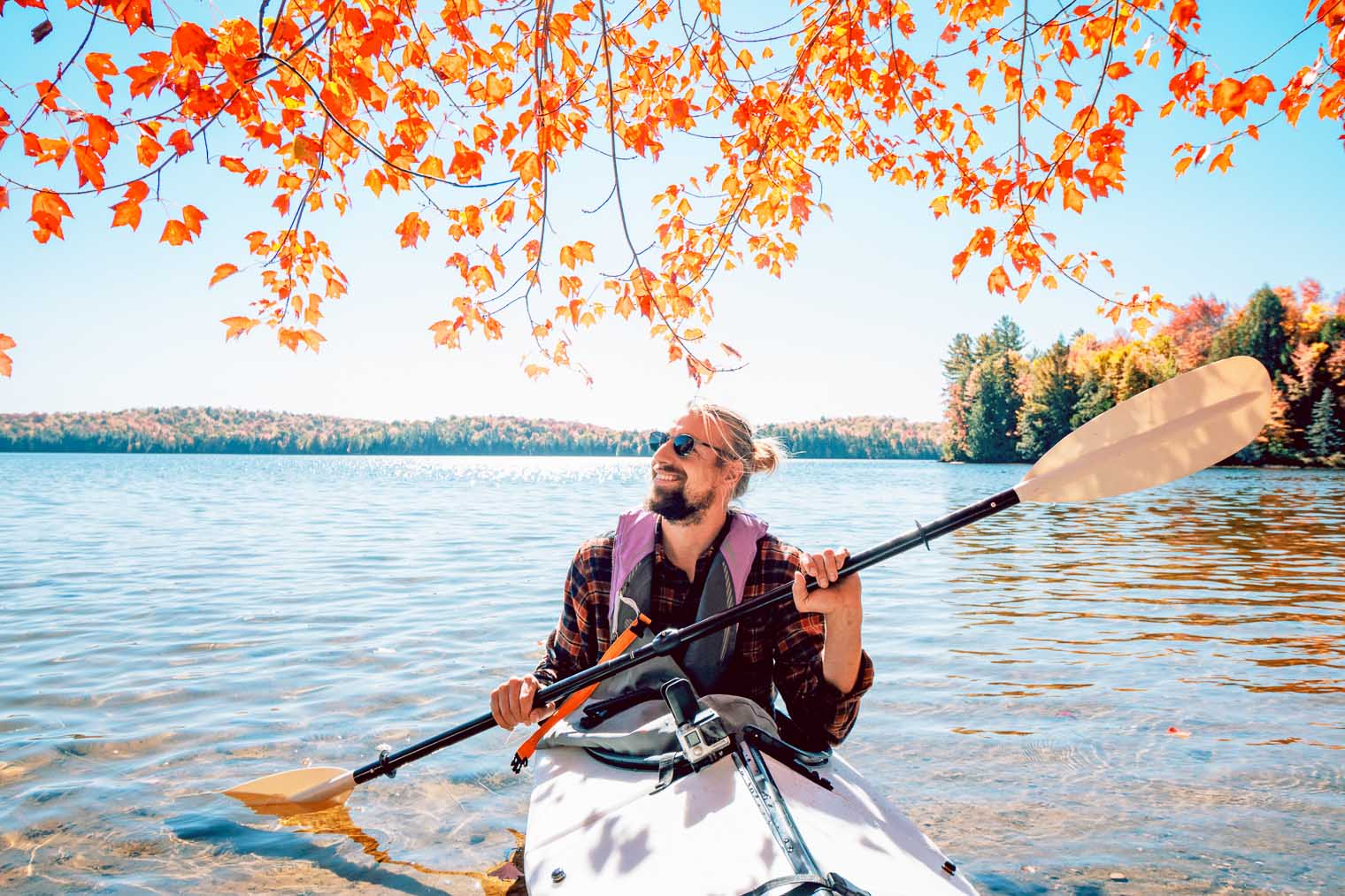
This looks like so much fun! I’d love to do a trip like this and those kayaks looks amazing! Hope you enjoyed yourselves 😀
Gotta love a multi-day kayaking trip. Western PA has a fun route from the Allegheny N.F. to Pittsburgh if you make it that way. 🙂
This makes me want to get a kayak asap! Looks lovely.
So beautiful, amazing. Thank so much. A day of rest with your family will help you have great feelings.
Love your blog so much. I was just there in May (First time) my friend told me. how beautiful Lake Placid is in the fall. Love all the pictures.
good !!
Beautiful photos and kayaking looks like so much fun!
so beautiful photos !!!